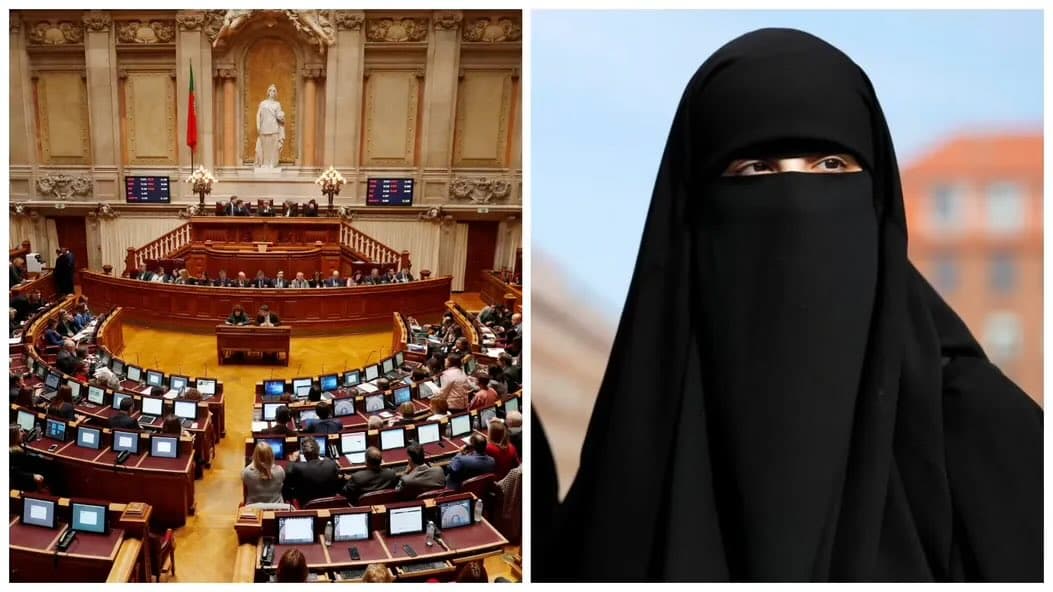We're loading the full news article for you. This includes the article content, images, author information, and related articles.
Portugal's parliament has passed a bill to ban face veils like burqas and niqabs in most public spaces, a move largely seen as targeting Muslim women and raising concerns about religious freedom and integration.

In a significant legislative development, Portugal's parliament, the Assembly of the Republic, on Friday, October 17, 2025, approved a bill prohibiting face coverings worn for "gender or religious motives" in most public areas. The measure, proposed by the far-right Chega party, specifically targets garments such as the burqa and niqab, commonly worn by some Muslim women. If signed into law, Portugal would join several other European nations with similar restrictions.
The bill, which received support from centre-right parties, stipulates fines ranging from 200 to 4,000 Euros (approximately KES 31,000 to KES 620,000) for violations. Exceptions to the ban include face coverings worn in airplanes, diplomatic premises, and places of worship. President Marcelo Rebelo de Sousa now has the authority to either approve the bill, veto it, or refer it to the constitutional court for review.
The far-right Chega party, which became Portugal's second-largest political force in recent legislative elections, championed the bill. The party argued that concealing the face subjects individuals, particularly women, "to situations of exclusion and inferiority" and is incompatible with principles of "liberty, equality and human dignity." This rationale echoes arguments made in other European countries that have implemented similar bans.
However, lawmakers from left-leaning parties opposed the bill, with some, like Socialist party lawmaker Pedro Delgado Alves, asserting that the initiative is "used solely to target foreigners, those who have a different faith." While acknowledging that no woman should be forced to wear a veil, Alves criticised the far-right party's approach.
Portugal's proposed ban aligns with similar legislation in European countries such as Austria, France, Belgium, and the Netherlands, which have full or partial prohibitions on face and head coverings. France, for instance, was the first EU country to ban full-face coverings in public spaces in 2010, citing concerns about secularism, women's dignity, and security.
Internationally, such bans have drawn criticism from human rights organisations. The UN Human Rights Committee, in 2018, found that France's ban on the niqab violated the human rights of two women, disproportionately harming their right to manifest religious beliefs and failing to adequately explain its necessity from a security standpoint. Amnesty International also designates face veil bans as dangerous policies that infringe upon women's rights, including freedom of expression and religion.
While the issue of Islamic veils has generated controversy in Portugal, similar to other European nations, it is important to note that a relatively small number of women in Portugal wear such coverings. The Muslim population in Portugal is a small minority, comprising around 0.4% of the total population, according to the 2021 census. The community is diverse, with roots in former Portuguese overseas provinces, the Middle East, the Maghreb, and South Asia.
Opponents of such bans argue that they unjustly restrict the religious liberty of Muslim women. Human Rights Watch highlights that many Muslim women make a free and informed decision to wear such coverings, and a ban fundamentally undermines their rights.
The approval of this bill carries several implications. For Muslim women in Portugal who choose to wear face veils, it could lead to increased feelings of marginalisation and discrimination. Research on France's 2004 ban on religious symbols in schools, which particularly affected Muslim headscarves, indicated a damaging impact on the educational attainment and long-term economic and social integration of young Muslim women. The ban reportedly widened the employment gap between Muslim and non-Muslim women and increased perceptions of discrimination.
Furthermore, some studies suggest that such restrictive religious policies may have the unintended consequence of inciting violence or radicalisation, rather than enhancing security. States that enforce veil bans have been found to be statistically more likely to experience more and more lethal Islamist terrorist attacks than countries without such laws.
The ultimate fate of the bill remains uncertain, as President Marcelo Rebelo de Sousa's decision is pending. His options include approving the bill, vetoing it, or sending it to the constitutional court for further review.
The debate also highlights a broader controversy in Europe regarding the balance between national security, cultural assimilation, and individual religious freedoms. While proponents often cite security concerns and the promotion of gender equality, critics argue that such bans are discriminatory and counterproductive to integration efforts.
The decision by President Marcelo Rebelo de Sousa will be a critical next step, determining whether Portugal officially adopts this controversial legislation. Observers will also be keen to see the reactions from human rights organisations and the Muslim community in Portugal, as well as any potential legal challenges that may arise if the bill becomes law.
Keep the conversation in one place—threads here stay linked to the story and in the forums.
Sign in to start a discussion
Start a conversation about this story and keep it linked here.
Other hot threads
E-sports and Gaming Community in Kenya
Active 9 months ago
The Role of Technology in Modern Agriculture (AgriTech)
Active 9 months ago
Popular Recreational Activities Across Counties
Active 9 months ago
Investing in Youth Sports Development Programs
Active 9 months ago